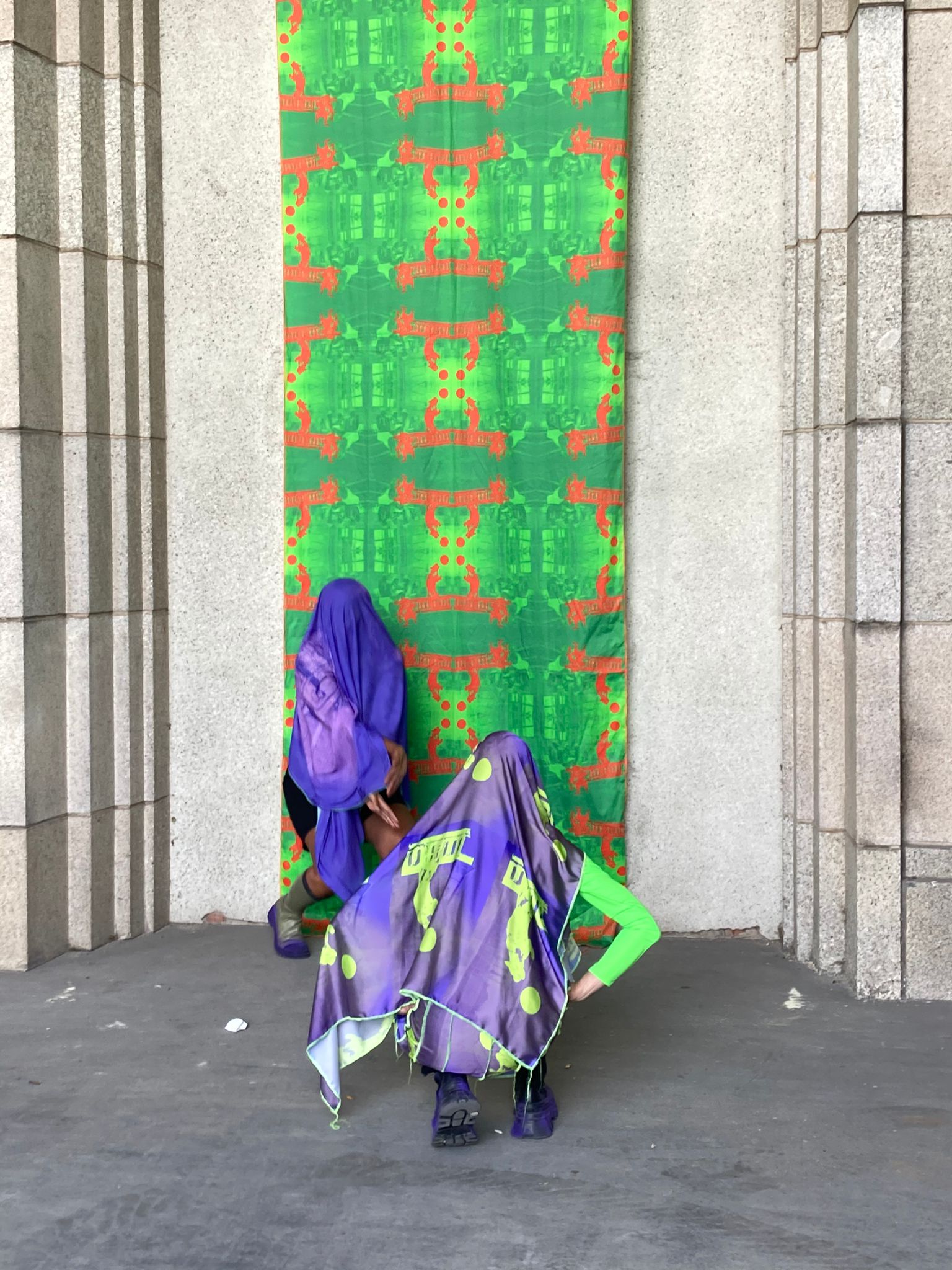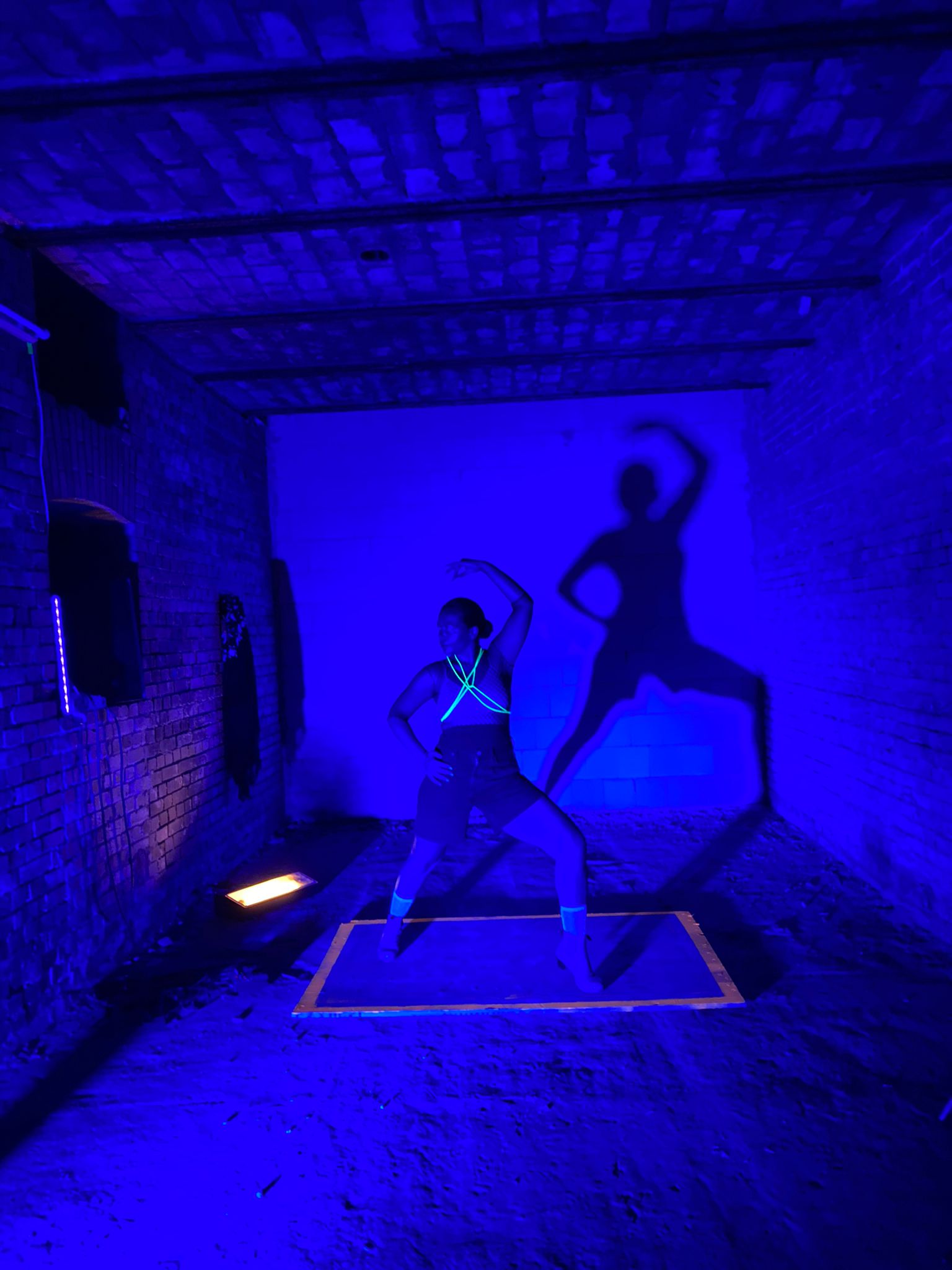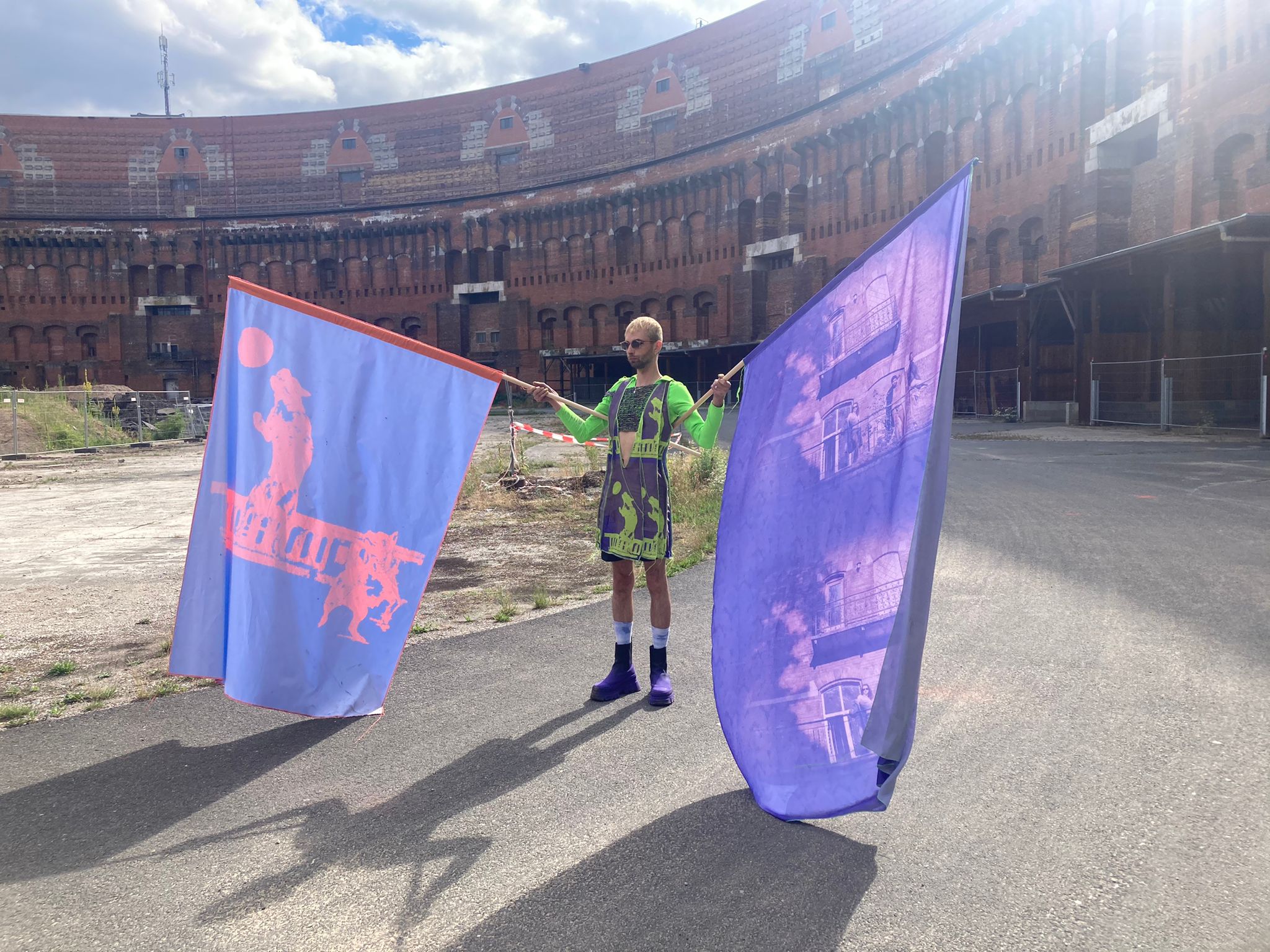Bio
PL/DK
b. 1986
she/her
Vala T. Foltyn is performance and installation artist, queer witch, art researcher, founder of Lamella the house of queer arts, born in Poland, currently lives and works in Copenhagen.
Primarily a performance artist; she received training from "Performers House" in Silkeborg (DK), a dance education led by Alyssa Joy Stith. She also studied performance with Shahar Dor at "Artness - Home and School for Movement” in a Kibbutz Ein Shemer, north from Tel Aviv. She gained her first masters in cultural anthropology at Jagiellonian University in Kraków with interest in anthropology of dance and embodiment. During her masters she traveled to San Francisco and studied with Anna Halprin at the Mountain Studio, which evolved into a long term research on her choreographic legacy.
Foltyn also lived in Slovenia and worked with Ljubljana based art collective Kud Ljud, she toured with their projects for couple of years, mainly focusing on art in public spaces (Seoul Gwacheon Festival in South Korea, Imaginarius in Portugal, Norwich & Norfolk Theatre Festival, Oerol Festival in Holland, Les Tombées de la nuit and Chalon dans la rue in France, La Strada Graz in Austria).
She developed her artistic practice by interweaving queer performance and visual thinking when she returned to Kraków (PL) in 2013. She presented her works at Zachęta Art Museum in Warsaw, Zamek Ujazdowski CSW in Warsaw, Bunkier Sztuki in Kraków, MOCAK and Modern Art Museum in Warsaw. She also worked with choreographers such as Isabelle Shad, Iwona Olszowska, Magda Ptasznik, Agata Siniarska, Kaya Kołodziejczyk and Roni Katz. She developed a performance for Magda Szpecht production “Last Animals” at Theatre Łaźnia Nowa in 2017.
In 2016, she founded a collective Lamella the house of queer arts, which is a nonstationary art platform. Lamella was created as a safer space for reflecting queer identity and engaged in the process of political, cultural and sexual liberation in Kraków. She also co-curated 40th and 41st edition of Kraków Theatrical Reminiscences, one of the oldest theatre festivals in Poland.
In 2018 Foltyn ran a political campaign to become the mayor of the city of Kraków as a gender non-binary witch and femme presenting person. She registered her committee with the State Electoral Commission as VALA and organised performance intervations as her promotional strategy.
She fled Poland in 2019 due to political changes and settled in Copenhagen. In June 2022 she gained her second degree in Master of Fine Arts in Artistic Research at Malmö Art Academy developing a methodology on queering and witching the archives as a strategy of resistance and mapping the territories of violence. In 2022 she was a resident at the Art Hub Copenhagen as part of their residency program for artists.
Witching the unspoken
ongoing research
#archives queering
#witching
“Witching The Unspoken” is a resaerch that tackles the idea of queering archives and searches for new methodologies in knowledge production; challenging Western references, the white-heteronormative gaze and institutional regimes of power.
My work is deeply tied to the notions of queering the archives, history of witchcraft and critical analysis of religion, catholic iconography, national and patriotic naratives and territories of violance.
My current research is rooted in the case study of a century old villa in Kraków, where I lived for several years before moving to Denmark in 2019. The archives of the villa consist of visual materials and traces back the history of resistance of female fighters from II WW. The house was also a place of many visits by Karol Wojtyła (Pope John Paul II), who lived next door.
The mapping of political and poetic narratives, personal and public become a ‘Gesture of The Witching’ as developed in my practice of magic.
During my studies at Malmo Art Academy I wrote in depth analysis of the archives which was informed by Vinciene Despret, Silvia Federici, Paul Preciado, Jose Esteban Munoz.
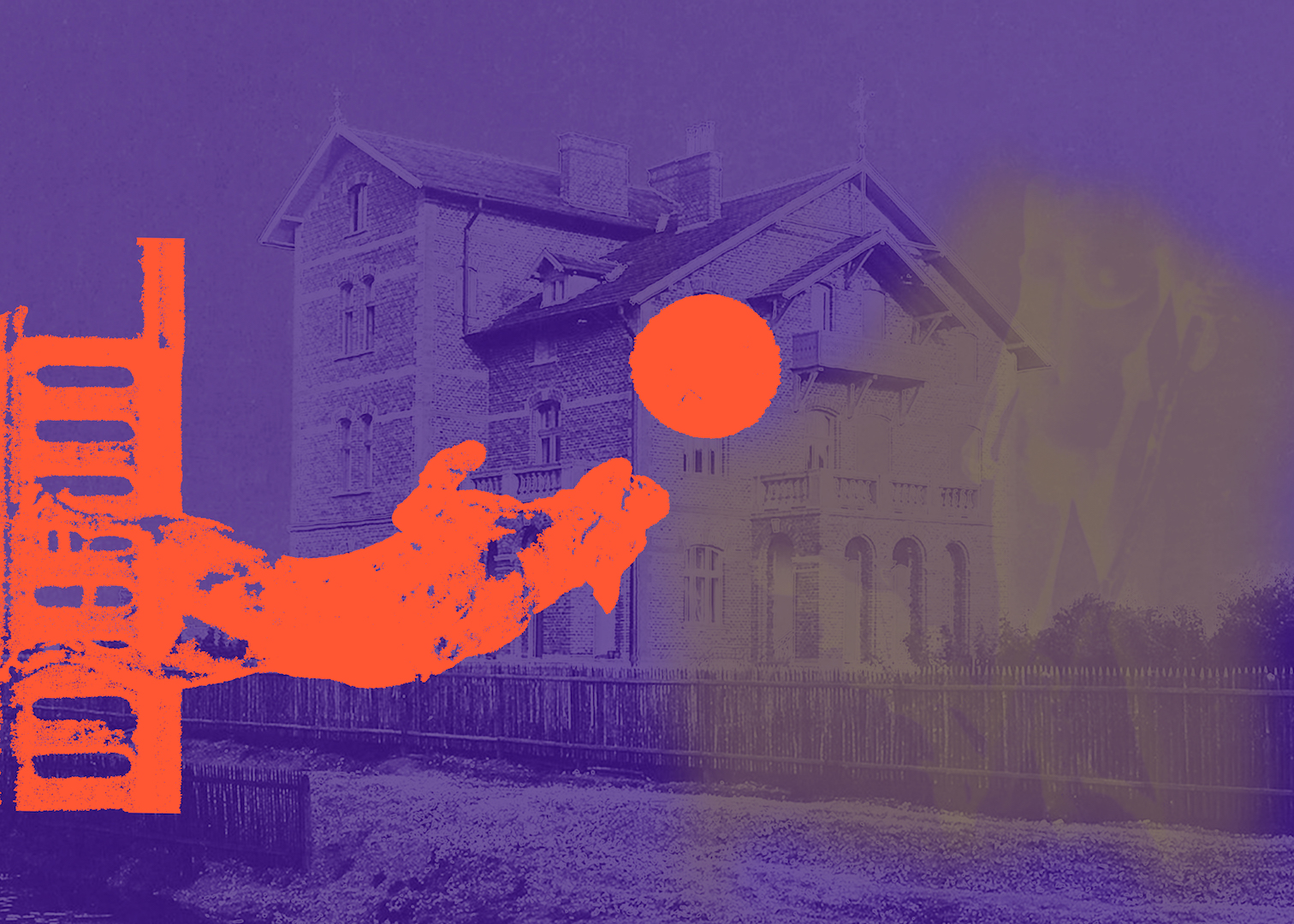
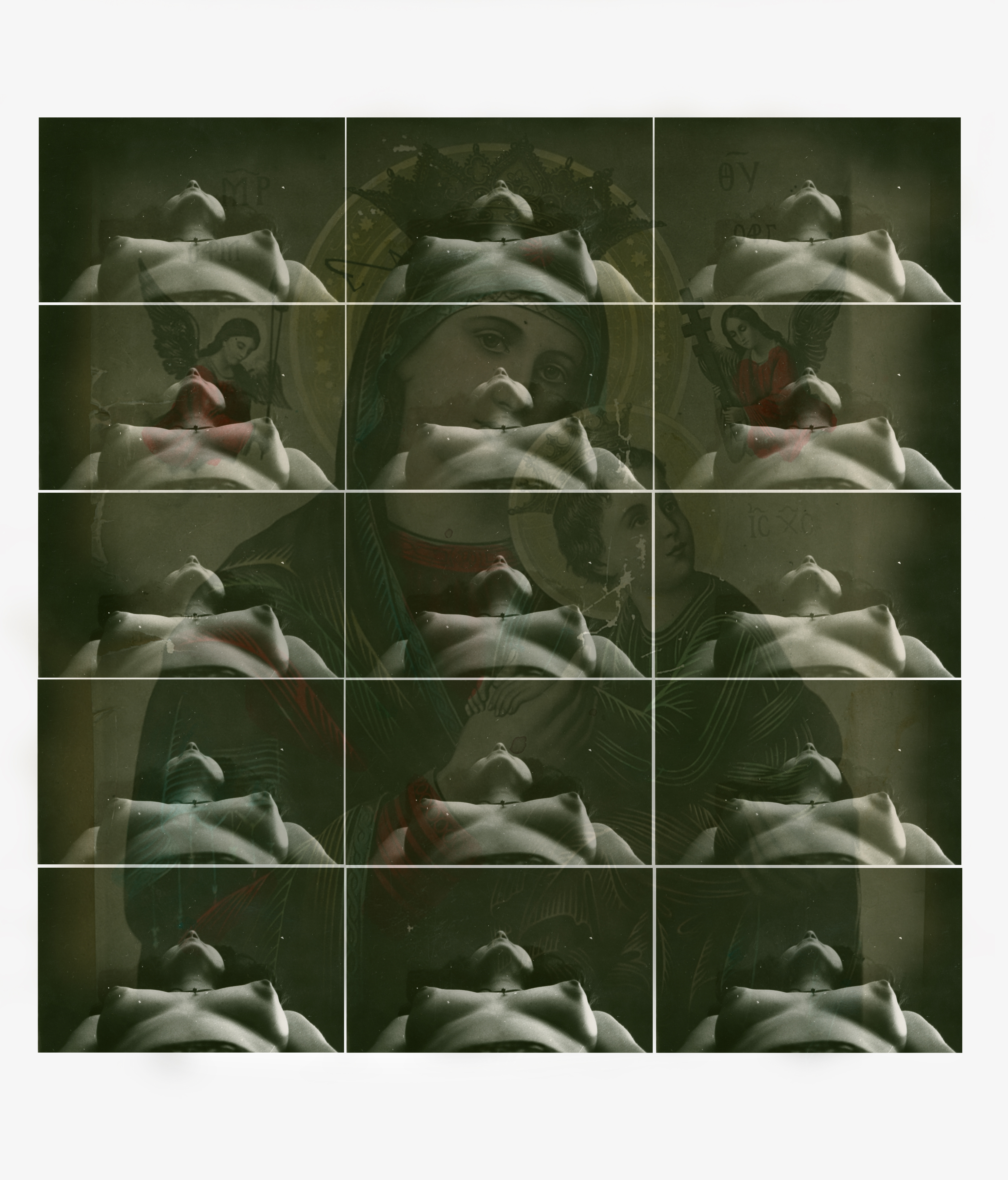


Queer Magick Intervention
2022
Nuremberg
Musik Installationen Festival
Wojtek Blecharz, Sall Lam Toro, Phyllis Akinyi
“Queer Magick Intervention” is the first collaboration between composer and installation artist Wojtek Blecharz (1981, Poland) and choreographer and performance maker Vala T. Foltyn (1986, Poland), which they develop for and against the site of the former Nazi Party Rally Grounds. In their genre- and discipline-crossing practices, the artists often address political issues of recent history, such as the Nazi dictatorship or current queerphobia, and they search for new modes of emancipatory practices, queering spirituality, rituals and aesthetics as a gesture of witching.
In this case study they voice the haunting of a specific location; a century old villa located in Kraków, Poland. The villa was a key location during the Nazi occupation as a resistance site for female officers of the Home Army, and in recent years became an independent art venue for queer artists run by Foltyn and Lamella queer arts collective. For this occasion the artists also invite other collaborators to brewing and witching the difficult pasts and unfold the queer futures with Sall Lam Toro, Phyllis Akinyi, Nicolas Navarro Rueda.
Wojtek Blecharz is a pioneer in the format which we would like to term music installations. With a classical training in composition, he gained international recognition for a series of opera installations in which various embodiments of sound collapsed the traditional divisions between stage and audience, sound and resonating body. He moves freely between acoustic instrumental composition and analog-electronic sound synthesis, and often uses language and performative elements to create expansive gesamtkunstwerke in time and space, most of which actively involve the audience.
Vala T. Foltyn is a performance artist who’s work is greatly informed by artistic research and queer methodologies. Trained as a cultural anthropologist and choreographer, her often process-based and community-oriented work seeks connections between art, activism and belonging, and revolves around witchcraft, writing and installation. The power of soft resistance and poetic rebellion find incantatory expressiveness in her intimate, ritualistic performances.
“Queer Magick Intervention” is a sound walk and ritual that engages an archive of Nazi resistance fighters from Kraków. Within the context of the former Nazi Party Rally Grounds, the territories of violence are explored and reshaped through queer and spiritual gestures of transfiguration.

